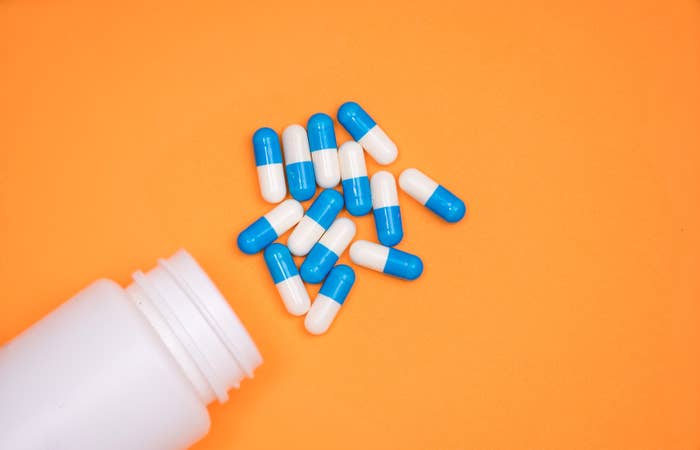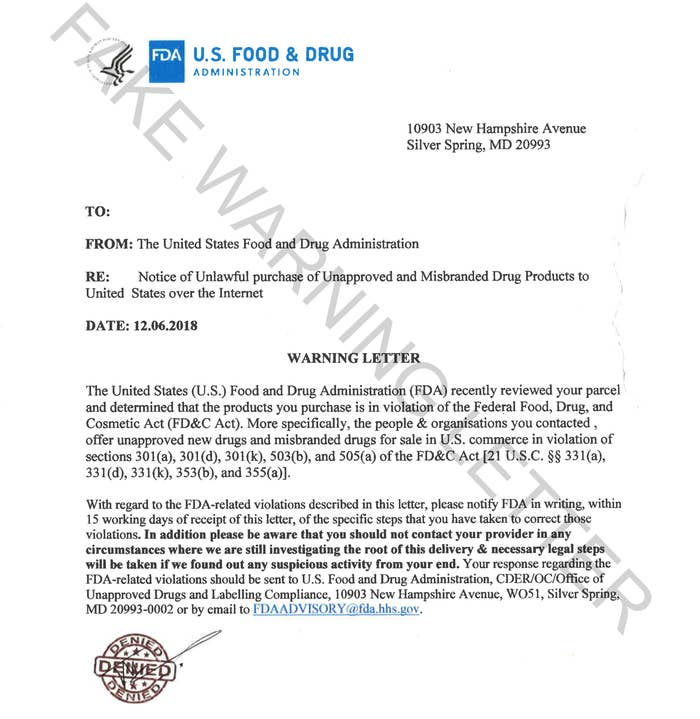
People who buy medicines from illegal online pharmacies have started receiving frightening letters in the mail: official-looking notices from the Food and Drug Administration telling them they’re breaking the law.
But the letters are fake, and the FDA says they might be part of an international con.
“Based on the agency’s experience with criminals posing as FDA employees, the FDA is concerned that these fake warning letters are linked to an international extortion scam,” the agency said in a public warning on Friday.
The FDA has received reports of about three dozen letters since the beginning of the summer, and doesn’t know who sent them. It’s also unclear how the mystery sender knew that the recipients were buying illegal drugs — or their addresses.
It’s a scam “the likes of which we have not seen before,” said FDA spokesperson Lyndsay Meyer.
The warning letters were sent to people who tried to buy medicines online or over the phone from illegal pharmacies, according to the FDA. These pharmacies often don’t require a valid prescription to purchase drugs, which may be unapproved, expired, counterfeit, or otherwise unsafe.
The FDA does send warning letters to these illegal pharmacies, as well as other companies and people involved with making and distributing drugs — but generally not to consumers who buy the products.
“Consumers who aren’t involved in manufacturing or distributing FDA regulated products should be on alert that if you get an FDA warning letter, it’s probably fake, and probably a scam,” said FDA Commissioner Scott Gottlieb in a press release. Gottlieb has been sounding the alarm about illegal pharmacies, and this spring asked tech giants to do more to remove them from their search results.

Some of the recipients of the fake letters had thought they were buying medications for insomnia, neuropathy, anxiety, blood pressure, cholesterol levels, and ADD/ADHD, according to Meyer.
The imposter letters closely mimic the the official ones, down to having an FDA letterhead and logo. Two letters, made public by the agency, claim that the FDA has determined the recipients’ purchases to be violating the law, based on a review of their deliveries and their social media accounts. The letters are generally addressed to “Sir/Ma’am,” but sometimes specific names, according to the agency.
The letters also warn consumers that “we are still investigating the root of this delivery & necessary legal steps will be taken if we found [sic] out any suspicious activity on your end.”
It’s not clear yet, though, what the goal of the letters is beyond scaring people. They ask the recipients to send a response to the FDA, and provide valid contact information for the agency.
“We don’t know exactly what the next steps in this scam are going to be,” said Meyer, the spokesperson. “We want consumers to know about it now so they don’t fall for it.”
The FDA is asking consumers who believe they may have received a fake warning letter to email FDAInternetPharmacyTaskForce-CDER@fda.hhs.gov.
